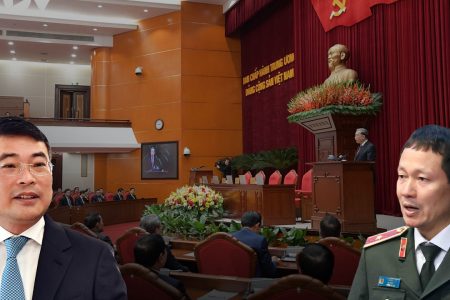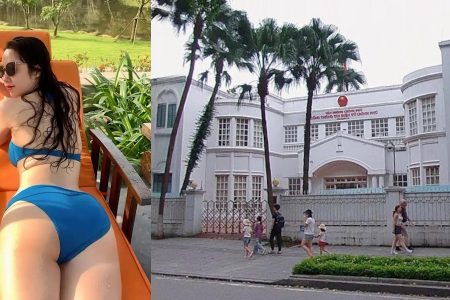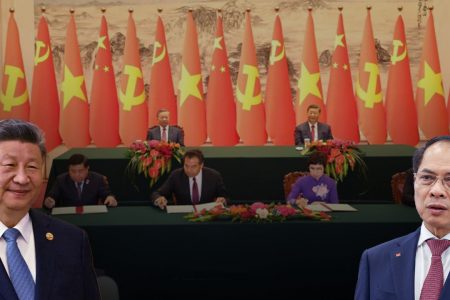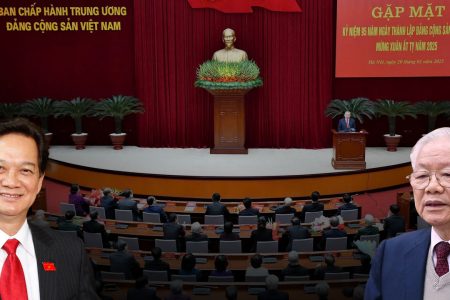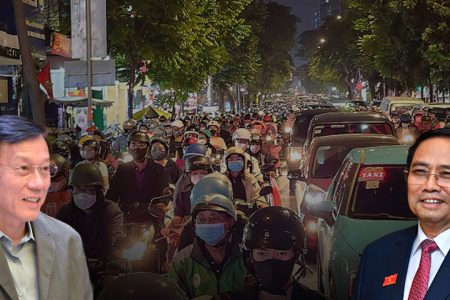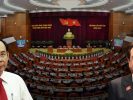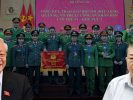
After being labeled by the US as a “currency manipulator” last December for keeping the domestic currency (VND) from appreciating, Vietnam intervened again in the foreign exchange market and used what trading traders said as an unusual mean, according to six people who know about this issue as well as according to an interbank transaction message review document.
In the early days of January, the State Bank of Vietnam (SBV) told some local banks that it would stop buying US dollars on the current market, where purchases were resolved within a few days, according to two experienced currency traders and an analyst who work together at local banks and are directly involved in the trading.
The central bank, instead, offers an attractive deal to local banks: The bank will agree to buy the dollar at a favorable rate when it is awarded in July and will allow local banks to cancel the deal by mid-June if they wish, according to three sources and based on a review of trading instructions sent by the SBV.
The new intervention, which has never been previously reported, helps to reduce pressure on the dong but doesn’t start trading right now, which the sources say could help avoid attracting US attention to transactions and any further consequences in the bilateral relationship.
Vietnam’s central bank did not respond to a request for comment.
There is no suggestion that Vietnam has committed wrongdoing. Many central banks intervene frequently in the money market. Vietnam has always said that its monetary policy is aimed at preserving stability and controlling inflation, not seeking advantages in trade.
“We have nothing published to share at the moment,” a treasury official said in an email in response to a Reuters request for the enforcement of Vietnam’s foreign exchange policy.
Vietnam is seen as strong export growth as the production of electronic goods and other goods increasingly moves to this Southeast Asian country, especially from China after the trade war with the US.
A higher value for VND in the midst of a pandemic is unfavorable and can hurt growth.
Mr. Nguyen Xuan Binh, head of research at KB Securities in Hanoi, and familiar with transactions that are not directly related to this, said postponing dollar delivery means the SBV could avoid creating one of the conditions behind American trademarks: buying the dollar for six of 12 consecutive months.
The semi-annual report of the Treasury Department sent to the US Congress, with the content of researching the exchange rate policy of major trading partners, said in December 2020, the currency management of Vietnam has created “an unfair competitive advantage in international trade.”
The report said Vietnam meets all the conditions that give rise to the designation of currency manipulation, including “regular, one-way intervention” in the money market.
The consequences for Vietnam if there are further interventions after it has been labeled “currency manipulator” is to cause the US to react, for example, to impose additional taxes on imports from Vietnam. US review is set for April.
Market influence
Under a January 2021 agreement, the SBV offered local banks a higher-market rate of VND23,125/$1, according to three sources and transaction documents by the Central bank sent out. This rate is an additional amount of about 0.5% above the current price.
If the VND appreciates between January and June, the additional payments will increase to the prevailing market prices for banks. If the weaker dong falls below 23,125 dong per dollar, local banks can cancel the deal and instead sell the dollar on the existing market.
Reuters was unable to confirm the extent of the SBV’s intervention, but three traders said the intervention was large enough to generate demand for the dollar in the market, putting less pressure on the dong.
The value for money on the black market, where the Vietnamese dong is normally exchanged in the real economy, fell 1.1% by the time traders said the dollar supply may have been exhausted.
Purchase contract in the future unusual
The SBV’s new transactions are similar to what the market calls “forwards,” in which parties hand money at an agreed future date, the three sources said.
The “forwards” contract offers a few advantages for the central bank. These contracts require no upfront payments and can make it easier to react to a sudden change in the reserve amount. Indeed these contracts are common to other Asian central banks, such as in India, Taiwan, and Korea.
However, four people familiar with the deal say the SBV deals are not model futures contracts, as they offer banks the solution to cancel the deal without significant costs.
Two of these sources said the SBV had previously offered similar solutions, around 2015. At that time, the SBV sold dollars in forwards to support the value of the dong which was falling.
As the SBV in the past prefers to use futures sales contracts at prices agreed to three months in advance, all six sources familiar with the deal say the move to a longer timeframe indicates a desire of the SBVwanting to buy time before the intervention causes American attention or pressure.
The SBV did not answer questions about their methods.
Thoibao.de (Translated)




